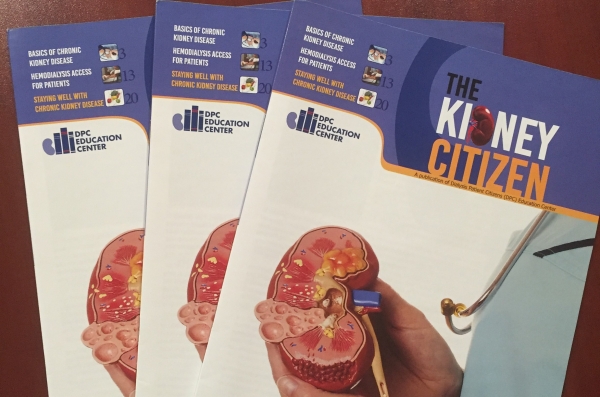News & Events
Discover new information and educational offerings that we provide. Explore our newsletters, blogs and upcoming webinars/conference calls.
Contents:
Celebrating Special Days or Holidays
By Kathi Niccum, EdD, Education Director, DPC Education Center Holidays and special days, such as birthdays and anniversaries, occur throughout the year. You may have recently celebrated Thanksgiving and are looking forward to the December holidays. Initially, though, some people new to or struggling with dialysis may find it challenging to celebrate and to feel the joy of the day. They may worry about how to eat a healthy, kidney-friendly meal if visiting friends or relatives or eating at a restaurant. They may find that they get tired easily and have to figure out how to fit dialysis into their special occasions, especially if they want to travel outside of their community. Holidays are a [...]
Holiday Eating Call Recording Available Now!
Were you unable to attend the last education call? Have no fear, the recording is here! Hear from Jessiana Saville as she explores the "ho ho hos" and "no no nos" of holiday eating!
The Kidney Citizen Issue 4
Inside this issue you will find information about one of the rare diseases that can cause kidney disease, Fabry. You'll also find information about getting through the holidays and patient advocacy.
Staying Well During Flu Season
With flu season upon us, it is especially important for you as a chronic kidney disease patient to take precautions to avoid infection. If you are also diabetic, your risk of being hospitalized because of flu increases dramatically. The Centers for Disease Control and Prevention (CDC) has released comprehensive guidelines about avoiding the flu and staying well during flu season. First and foremost, the CDC recommends the flu vaccine for everyone 6 months and older unless told otherwise by a healthcare professional. It is important to note, you cannot get the flu from the flu shot. If you do contract the flu, one possible complication can be pneumonia. For those with chronic diseases, like CKD and diabetes, [...]
November is Family Caregiver Month
By Kathi Niccum, EdD, Education Director of DPC Education Center Let’s celebrate our caregivers this month! Hopefully, we will tell them often how much they mean to us and how much we appreciate their help, yet November is a time to make it “extra special.” For some, their caregiver is a spouse, a daughter or son, a sibling, or a special friend. Our informal caregivers (unpaid folks who assist with activities of daily living and/or medical tasks) help with so many tasks including transportation, medication reminders, doctor visits, coordination of health care, advocacy, and they provide personal emotional support. Caregivers make life easier for the caregivee (person who needs assistance and has healthcare needs). In [...]
Research Shows Eating More Fruits and Vegetables Cuts Kidney Patients’ Medicine Expense in Half
High blood pressure is one of the leading causes of kidney disease. When blood pressure is too high, blood vessel walls can thicken and become stiff which can also damage organs throughout the body such as the kidneys. Not only can high blood pressure damage kidneys, but kidney disease can lead to high blood pressure. If kidneys are damaged and can no longer make an enzyme known as renin, blood pressure can be elevated. With continued emphasis on managing and even preventing chronic conditions to improve overall health, research is continuing to occur to find effective interventions to treat conditions such as high blood pressure. Recently, we reported on the DASH diet and how a diet low in [...]
DPC Education Center Joins Forces With the CDC’s Making Dialysis Safer for Patients Coalition
We are proud to announce that the DPC Education Center has recently partnered with the Making Dialysis Safer for Patients Coalition to help reduce the risk of bloodstream infections among hemodialysis patients. The Coalition is a collaboration of dialysis organizations who share the common goal of promoting the use of CDC recommendations and tools to improve patient safety nationwide. Dialysis Patient Citizens has been involved with the Bloodstream Infection (BSI) Collaborative since its creation and was the first patient group to participate, attending the inaugural meeting in 2011. The Making Dialysis Safer For Patient Coalition was created out of this initial effort and is working to spread awareness about preventing bloodstream infections, facilitate implementations of the CDC recommended Core Interventions [...]







